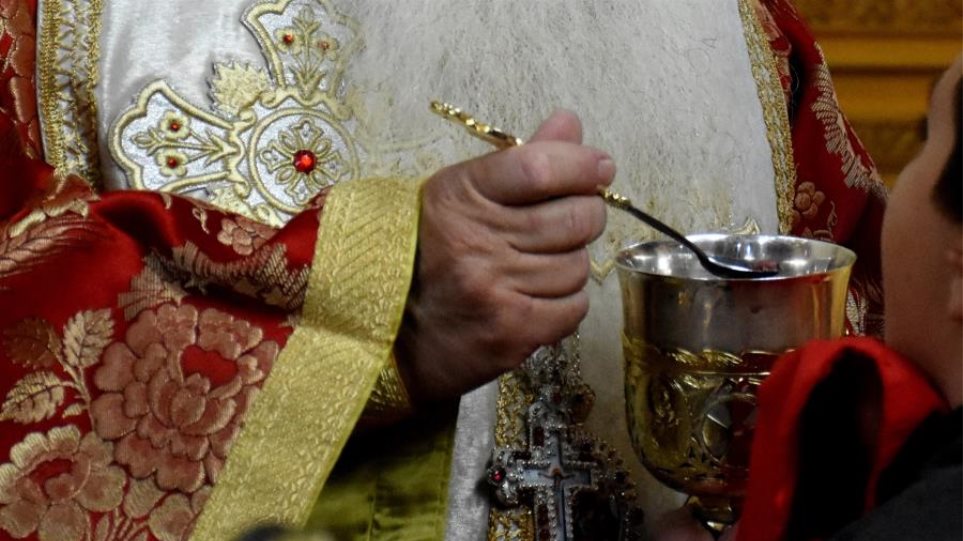
In our holy churches, there are various Divine Services served daily. Hymns and Old Testament Psalms are read or sung, as well as the prayers and supplications recited by the priest. Additionally, there are hagiographic readings. The established Divine Services are as follows:
-The Vespers is served every afternoon and with it begins the cycle of Divine Services of the given day. During Vespers, the wonderful ancient evening hymn "O Gladsome Light” is sung.
-The Nocturns or Midnight Service is normally served at midnight, and the following hymn is chanted: "Behold, the Bridegroom comes in the middle of the night...".
-The Matins normally begins before sunrise, and at the end of the service the Great Doxology is sung: "Glory be to Thee who showed us the light...".
-The Hours: First Hour (around 06:00) which is dedicated to the Light of the world, our Lord Jesus Christ; Third Hour (around 09:00), with the content of the hymns and supplications referring to the events of Pentecost; Sixth Hour (around 12:00), which refers to the Sacrifice of the Lord; and Ninth Hour (around 15:00) during which the crucified Lord surrendered His spirit to God the Father.
Depending on the Ecclesiastical period, other Divine Services are added to this cycle, such as the Great and Small Compline, Akathist Hymns, Prayer Canons to the Virgin Mary or the Saints, and Commemoration Services for those who have reposed in the Lord.
All these Divine Services are wonderful, calling us to raise our souls to Heaven. They contain within them all the basic elements of pure prayer, through which we express before the Triune God our praise and gratitude for His infinite blessings, and our repentance for the sins that we have willingly committed (out of ignorance and negligence). We draw strength and grace for our spiritual struggles and the adversities of daily life from them. The spiritual benefit to the faithful from our regular participation in the daily Divine Services of our Orthodox Church is indeed great!
It must be emphasized, that no matter how great the Divine Services are, or how awe-inspiring they may be, none of them can be compared to the height, radiance, and majesty of the Divine Liturgy! To use the solar system as an illustration, the Divine Liturgy is the Sun that shines everywhere, with the other Divine Services being the planets that revolve around it, reflecting that light. The whole twenty-four hour liturgical cycle has the Divine Liturgy as its center and point of reference. There, in the Divine Liturgy, the sanctifying work of the Church and the sanctification of the faithful culminates and is completed. But there are some Orthodox Christians who out of ignorance confuse the Divine Liturgy with the other Divine Services that we have mentioned.
What makes the Divine Liturgy superior to all other Divine Services? What is so extraordinary about it, and why is it different? The answer is the Mystery of the Divine Eucharist. During the hour or so that the Divine Liturgy lasts, the Mystery of Mysteries is completed, having been established by our Lord Jesus Christ to His Disciples during the Last Supper on Holy Thursday (shortly before he was arrested to be crucified). Three holy Evangelists (Matthew 26:26-29; Mark 14:22-25; and Luke 22:14-22) describe how the Lord during the Last Supper performed the Mystery of the Eucharist by changing the wine into His Holy Blood and the bread into His Holy Body, communing with His Disciples for the first time!
It is striking that the Apostle Paul describes, almost with identical words as the three holy Evangelists, how the Lord delivered the Mystery of the Eucharist. He also states, that he did not hear it from men, but, as he writes: ”For I received from the Lord what I also passed on to you: The Lord Jesus, on the night He was betrayed, took bread, and when He had given thanks, He broke it and said, ´This is my body, which is for you; do this in remembrance of Me.´ In the same way, after supper He took the cup, saying, ´This cup is the new covenant in My blood; do this, whenever you drink it, in remembrance of Me.´ For whenever you eat this bread and drink this cup, you proclaim the Lord’s death until He comes.” (1 Corinthians 11: 23-26)
Beneath these simple words lies a great depth of spiritual truths that must be sought after, despite our limited mental and spiritual powers in approaching them. It is much more difficult to truly comprehend the deeper meaning that is found in the Lord’s actions at the Last Supper. This is due to the fact, that we are facing a sacred and unique Mystery! We know that the closer our Lord Jesus Christ came to the moment of His separation from His Disciples, the more He revealed His Love for them. St. John, the disciple of love, as he is called, writes characteristically: ”It was just before the Passover Festival. Jesus knew that the hour had come for Him to leave this world and go to the Father. Having loved His own who were in the world, He loved them to the end.” (John 13:1)
The fruit of this perfect love of the Lord for His Disciples, and all who would believe in Him, is the establishment of the Mystery of the Eucharist, as we shall see in our next Sermon.





